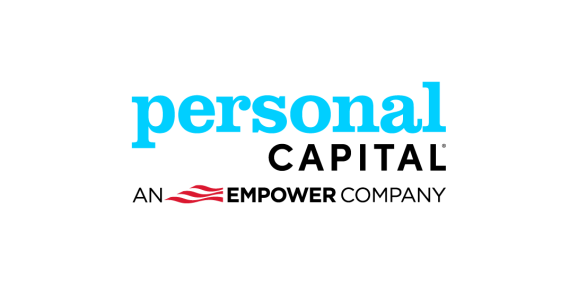
For success as a sales analyst at the top, strong ethics are crucial. It can allow you to perform in even the most difficult of circumstances. You will be able to prove your worth in situations where you may need to make ethical choices. Here's how to create a strong moral compass as a sales analyst.
Job description
A sales analyst's job is to monitor sales figures, identify areas for improvement, provide support to the marketing department and sales team. They must be able handle multiple projects simultaneously and communicate well. They should have worked with customer-facing groups, including tech companies. Strong negotiation and verbal skills are also required. They should also be familiar with the basics of digital marketing.
Sales analysts work in collaboration with the marketing team and other departments. They analyze data and trends to maximize sales. They study customer behavior, competitor data and sales channels in order to identify the best ways to increase market share and revenue. They collaborate with other departments in order to develop marketing materials and campaigns that will increase sales. Sales analysts are also often responsible for helping develop marketing budgets and providing guidance for decision makers.

Duties
Although the duties of a sales analyst are varied, they all focus on analysing sales data for an organization. Analysts analyze competitor activity and customer metrics to make recommendations that will improve the company's sales performance. They also help marketing teams develop promotional campaigns, budgets, and provide guidance.
Sales analysts also have to evaluate and present data to executives. This data can include information about market trends, competitor research and general sales trend. They will also help companies identify and implement strategies to increase their revenue and address any weaknesses in their sales environment. They may also assist in the planning and analysis of future budgets, and assist with budget changes or restructuring.
Education
An individual who is passionate about sales will be a good candidate for the role of sales analyst. He or she should have excellent communication and analytical skills, and must be able to interpret a great deal of data. A previous work experience in marketing or sales is a plus. This job requires at least a bachelor's level of education.
The main tasks of a sales analyst are to evaluate sales data and determine whether a company is successful. They create reports to analyze market trends and customer metrics. Sales analysts can also advise marketing teams on how to target specific markets.

Salary
An analyst who analyzes and tracks market trends and competitive activity for sales teams to make strategic decisions is called a sales analyst. They make recommendations about how to increase sales. A sales analyst typically needs a degree in business administration, marketing, or finance. A strong research skill and experience using CRM software are essential. This job earns an average annual salary of $132132. Here are some other common duties of a sales analyst.
The salary for this role is determined by education, work experience, and where you live. This role is responsible for monitoring and analysing customer preferences as well as completing client-requested sales orders. The minimum wage for this job varies depending on where you live. Salary figures should be verified with the employer to ensure they are correct.
FAQ
How do I choose a consultant?
Three main factors should be considered:
-
Experience - How skilled is the consultant? Is she a beginner? Intermediate? Advanced? Expert? Does her resume show that she has the necessary skills and knowledge?
-
Education – What did this person learn at school? Did he/she pursue any relevant courses once he/she graduated? Were there any evidences of this learning in his/her writing?
-
Personality – Do we like this person/person? Would you want this person to work for you?
-
These questions can help you determine whether the consultant is right for your needs. If the answers to these questions are unclear, it might be worth a first interview to get more information about the candidate.
Are consulting incomes subject to tax?
Yes. Taxes will be charged on consulting profits. The amount of your earnings per year will determine the tax payable.
If you are self employed, you can claim expenses in addition to your salary. This includes rent and childcare.
You can't deduct the interest on loans, vehicle damage, or equipment costs.
Only 25% of your expenses can be claimed back if you make less than PS10,000 annually.
Even if you earn more than the threshold, you could still be taxed depending upon whether you are classified as a contractor and/or employee.
Pay as you Earn (PAYE) is the most common method of taxing employees. Contractors pay VAT.
Who hires consultants
Many organizations hire consultants to assist with projects. These consultants can be found in small and large businesses as well as government agencies, universities, educational institutions, non-profits, and education institutions.
Some consultants work directly for these organisations, while others freelance. The process of hiring depends on the size and complexity the project.
When hiring consultants, you will probably go through several rounds of interviews before choosing the person you think would be best suited for the position.
What should your consulting fees be?
It depends on what service you provide. If you're providing services for free, there is no reason to charge anything. However, if you are selling products or services, then you need to set prices based on value.
If you are offering low-quality services, you don't have much to sell. So why would anyone pay any money for your services.
You may be able to ask for a higher price if you offer high-quality services. This is because people know the value that you provide. You may also want to offer discounts to clients who buy multiple packages from you.
Statistics
- On average, your program increases the sales team's performance by 33%. (consultingsuccess.com)
- "From there, I told them my rates were going up 25%, this is the new hourly rate, and every single one of them said 'done, fine.' (nerdwallet.com)
- WHY choose me: Why your ideal client should choose you (ex: 10 years of experience and 6-week program has helped over 20 clients boost their sales by an average of 33% in 6 months). (consultingsuccess.com)
- Over 50% of consultants get their first consulting client through a referral from their network. (consultingsuccess.com)
- According to IBISWorld, revenues in the consulting industry will exceed $261 billion in 2020. (nerdwallet.com)
External Links
How To
How to Start a Consultancy Company and What Should I Do First
Start a Consulting Company to make some extra money from home. No prior business experience is required. You can start your own consulting firm by building a website. Once you have a website built, you can start using social media platforms such Instagram and Pinterest to spread the word about you services.
These tools will allow you to create a marketing plan which includes:
-
Content creation (blogs).
-
Establishing connections (contacts)
-
Generating Leads (lead generation forms).
-
Selling products (eCommerce websites)
Once you've developed your marketing strategy, you'll need to find clients who will pay for your services. While some prefer to network through events and networking groups, others prefer to use online tools like Craigslist or Kijiji. The choice is up to you.
Once you've found new clients, you'll want to discuss terms and payment options. You can discuss hourly rates, retainer agreements, flat fees, and other options. It's important to know what you expect before accepting a client so you can communicate clearly throughout the process.
An hourly agreement is the most common contract for a consulting service. This type of contract requires you to provide certain services at fixed rates each week or month. Based on the service you provide, you might be able to negotiate a discount based on the length of your contract. It is important to understand the terms of any contract you sign before you sign it.
Next, create invoices for your clients and send them. Invoicing can be a complicated task until you actually attempt it. You have many options to invoice your clients. Some prefer to send their invoices directly by email, while others prefer to print and mail hard copies. Whatever your preferred method, make sure it works well for you.
Once you have completed creating invoices you will want to collect payment. PayPal is preferred by most because it is easy-to-use and offers multiple payment options. There are many other payment options, such as Square Cash, Square Cash and Google Wallet.
Once you're ready to begin collecting payments, you'll want to set up bank accounts. You can keep separate checking and savings accounts to track income as well as expenses. Setting up automatic transfers into your bank account is also helpful when paying bills.
It can seem daunting to start a consulting business. But once you understand how it works, it becomes second nature. For more information on starting a consultancy business, check out our blog post here.
The best way to make extra cash is to start a consulting business. Remote consultants don't need to be tied down by office politics or work long hours. Because you don't have to work a set number of hours per week, you can be more flexible than a traditional employee.